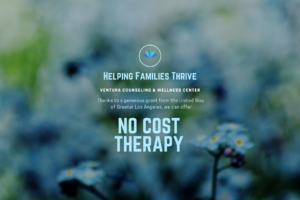The National Institute of Mental Health said it best: “Technology has opened a new frontier in mental health support.” Want mental health care at your fingertips? There’s an app for that!
Getting your mental health care through the screen of your phone has some definite perks, but it comes with drawbacks, too. To help you figure out if this option is right for you, let’s take a look at the pros and cons of mental health apps.
Pro: they’re easily accessible
Convenience is a big barrier to mental health care. People feel they’re too busy to find a therapist, let alone visit one on a regular basis.
Most of us spend hours a day on our phones, though. By making mental health care available in an interface most of us are already extensively using, mental health apps make it easy to get started with mental health care.
Con: they lack of proven effectiveness
Because mental health apps are relatively new to the scene, they lack comprehensive studies showing that they’re an effective form of mental health care. Therapy, on the other hand, has extensive research demonstrating that it works.
Pro: they’re affordable
When you weigh the pros and cons of mental health apps, this is a pretty big one. Most people assume therapy is a pricey undertaking. (It’s not, actually — talk to us if you’re curious how affordable we can make it for you).
With a mental health app, you can see pricing at a glance and quickly decide if it fits your budget. This helps a lot of people get past the fear that the cost of therapy will make it unsustainable for them.
Con: they’re unregulated
Licensed therapists have to go through a rigorous training process. Just ask any of our staff therapists!. On the other hand, anyone can make an app.
If you weight the pros and cons of mental health apps and decide you want to give on a shot, make sure you choose a solid option. We recommend looking over this list of vetted options from the Anxiety and Depression Association of America.
Pro: they’re a good introduction to mental health care
On top of cost and inconvenience, people often have a plethora of reasons they don’t think therapy is right for them. But an app isn’t intimidating. They’re usually designed with a user-friendly interface. People feel more comfortable doing something from their personal device rather than showing up in person.
All told, mental health apps can be a great way to get your feet wet with therapy or another form of mental health care. We’re all for using an app to explore mental health care. Just know that if you want more, it might be time to make an appointment with a therapist.
Con: they rely on you for self-diagnosis
Many mental health apps treat one specific condition. To find an app that’s going to be most effective for you, you essentially have to figure out which mental health condition is impacting you on your own. That’s a lot like trying to diagnose your own physical health condition.
Plus, many people living with mental illnesses are impacted by more than one condition. A specific app might target part of what’s affecting you while leaving other aspects of what you need completely unaddressed.
Now that we’ve looked at some of the pros and cons of mental health apps, you should have a better feel for what they can do — and what they can’t. If you think you’d get more out of connecting to a real person, we’re here. Right now, our team is offering telehealth mental health appointments.
With these video mental health care calls, you get the convenience and comfort of a digital interface with the expertise and care of a real person. To learn more, call, email, or text us today.





